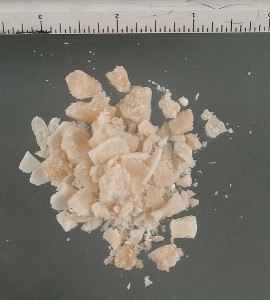Fighting substance abuse is hard. For those with serious drug problems with methamphetamine, cocaine, and other stimulants, the Substance Abuse and Mental Health Services Administration (SAMHSA) has created a treatment program called the “Matrix Intensive Outpatient Treatment for People With Stimulant Use Disorders (IOP)”.
Part of this program is regular drug testing. It’s an important way for a counselor to understand and keep track of a client’s progress in treatment. We highlight it here because it is such a well constructed drug testing program.
The Philosophy
Urine drug testing is used in the Matrix Intensive Outpatient Treatment for People with Stimulant Use Disorders among other drug testing methods like the blood test and the breathalyzer for alcohol testing as a tool that can be used to help clients abstain. These tests are used to record and later study valuable clinical data that can help in studying the patterns.
[caption id="attachment_546" align="alignright" width="270" caption="Crack cocaine - a drug commonly tested for by rehab counselors."]

[/caption]
Drug testing helps in recovery by
- Discouraging the client from resuming substance use
- Providing information and data
- Providing the client with objective data, especially in case of denial
- Giving indications when the therapy needs to be modified and changed to get better results
Management of Urine Drug Testing
There are specific protocols that should be followed to ensure that urine drug testing used for drug recovery is not based on mistrust between the client and the counselor. Here are some of the details.
Schedule – While urine drug testing may’ve been conducted in a random manner earlier, the practice has been replaced by regular and periodic tests that ensure that it becomes a matter of routine. However surprise tests should also be done after high risk days
buy phentermine online like payday and weekends or missed appointments and unexplained behavior.
Sample tampering - It is not uncommon for clients to tamper urine samples. It is important to inform the client about the process that is followed when a tampered sample is suspected. The fact is that a tampered sample most likely indicates drug abuse and therefore the issue needs to be handled with care. The topic should be discussed in private and no jokes should be made about the event to relieve tension. In extreme cases, the sample collection will need to be observed, something that is uncomfortable for the staff and embarrassing for the client too.
Positive drug test results – If a positive result is obtained in urine drug testing, there is a need to reevaluate what happened around the few days before the positive results. The client should be given a chance to explain and it should be noted that acceptance of a slip is a positive indication that aids therapy. Discussing the validity of the urine drug testing should be avoided completely. A counselor might need to increase the frequency of testing or change the course of the therapy depending on the situation. Complete denial and aggressive behavior should be handled with care too.
Drug testing is a tool for both the addict and counselor alike in their quest for treatment. The “Matrix Intensive Outpatient Treatment for People With Stimulant Use Disorders (IOP)” is a great example of a drug testing program. For more information, please check out
SAMHSA's website, or download the
Counselor's Treatment Manual (warning: PDF), which expands on the general points made here about the drug testing regimen they suggest.
-
Article by Anne Hamilton